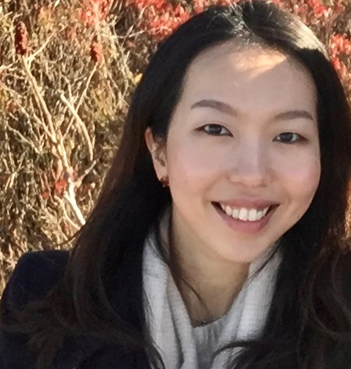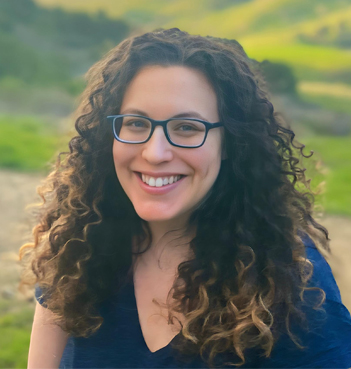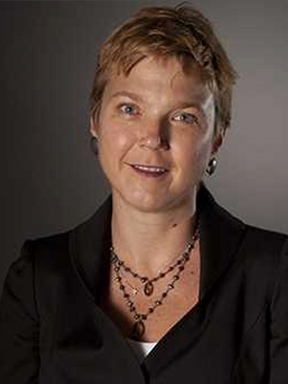
Scientific DirectorLinda G. Griffith, PhD
MIT School of Engineering Teaching Innovation Professor of Biological and Mechanical Engineering
MIT MacVicar Fellow
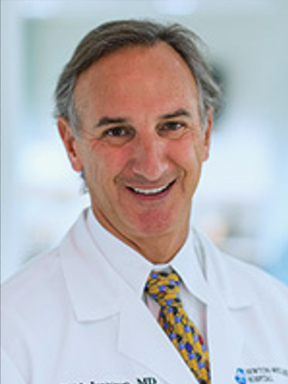
Clinical Director
Keith B. Isaacson, MD
Harvard Medical School Associate Professor of Obstetrics, Gynecology and Reproductive Biology
Newton-Wellesley Hospital Medical Director for Minimally Invasive Gynecologic Surgery
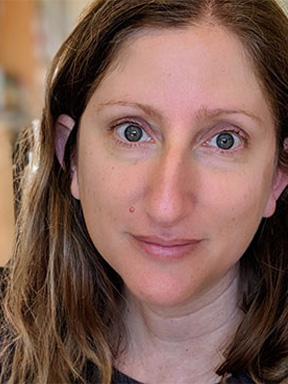
Associate Scientific Director
Michal (Mikki) C. Tal, PhD
Principal Scientist
MIT Department of Biological Engineering
Learn more at talresearchgroup.org
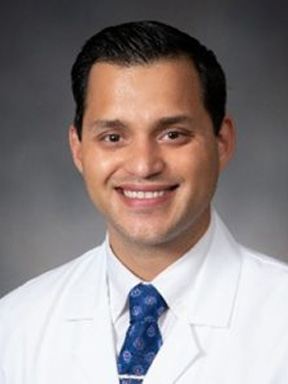
Associate Clinical Director
Peter R. Movilla, MD
Associate Medical Director, Newton Wellesley Hospital – Mass General Brigham
Associate Clinical Director & Research Affiliate – MIT Department of Biological Engineering
Recent Alumni with Ongoing Collaboration
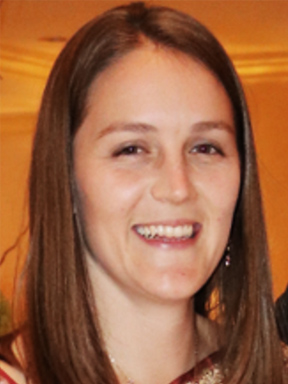
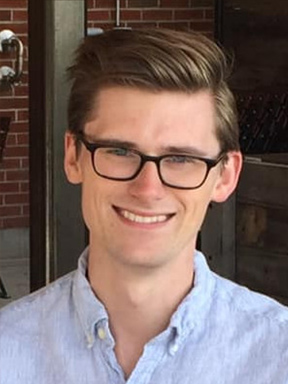
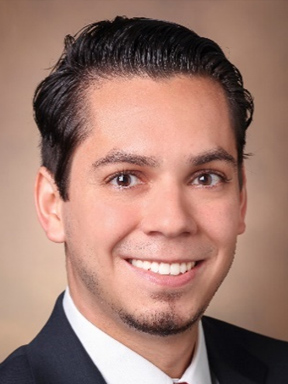
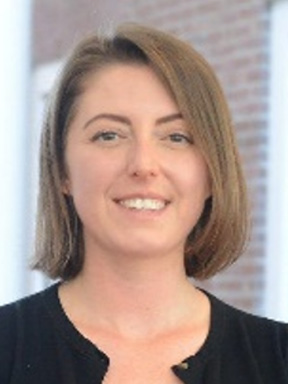
Britt Goods, PhD
Assistant Professor of Engineering, Thayer School of Engineering, Dartmouth University
For more information, see The Goods Lab website.
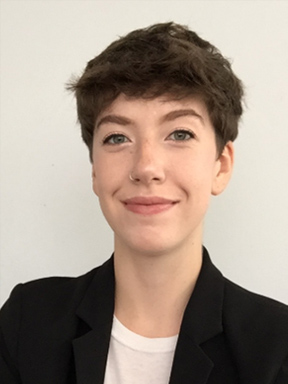
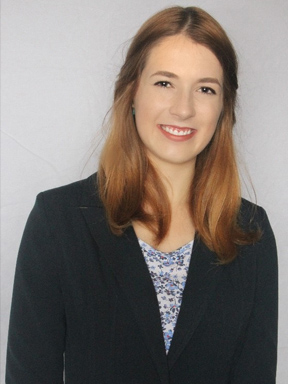
Allison Lenhard
Incoming Mechatronics Engineer NASA JPL
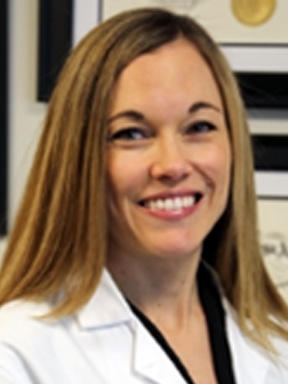
Megan I. Loring, MD
Associate Director of the Endometriosis & Adenomyosis Care Collaborative and Gynecologic Surgeon, Newton-Wellesley Hospital Minimally Invasive Gynecologic Surgery
(See full bio)
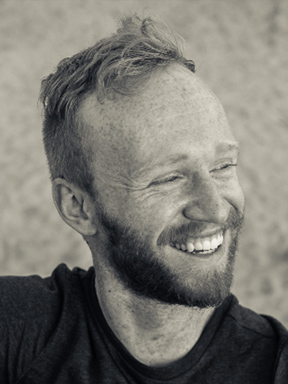
Current CGR Lab Students, Postdocs, and Staff
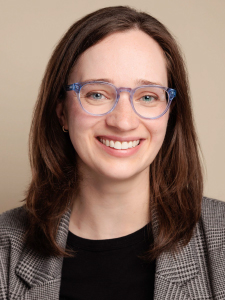
Laura Bahlmann
Postdoctoral Fellow
BASc, Nanotechnology Engineering, University of Waterloo, Canada
PhD, University of Toronto, Canada
NSERC Postdoctoral Fellow
Immunoengineering in vitro models of endometriosis and Lyme disease
Bahlmann earned her PhD from the University of Toronto where she developed a biomaterial to model and screen drugs against immune interactions in cancer. Her postdoctoral research at MIT lies at the intersection of chronic and infectious disease, where she is studying inflammatory cascades in models of endometriosis and Lyme disease.
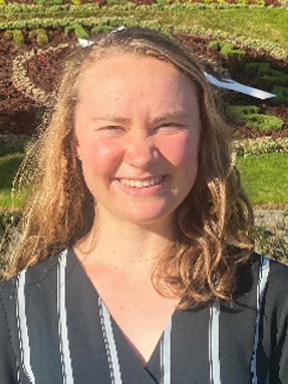
Kira Buttrey
Undergraduate Student, Biological Engineering
Buttrey joined the CGR team of the Griffith Lab in the summer of 2020. During the 2020-2021 academic year she worked as a lab technician and researcher. During COVID, Buttrey took a leave of absence from classes to work in the lab as a more immersive experience. She returned to classes in the fall of 2021, continuing involvement with CGR through a UROP (undergraduate research experience).
Buttrey’s main project has been adopting 3D methods to culture endometrial stromal cells and preserve their decidualization response. She has also been involved in coculture experiments and lightsheet microsopy to characterize endometrial glands and nerve fibers.
She is on track to graduate with a degree in biological engineering in spring 2023, with minors in Spanish and computer science and looks forward to continuing work with CGR through a senior thesis research project.
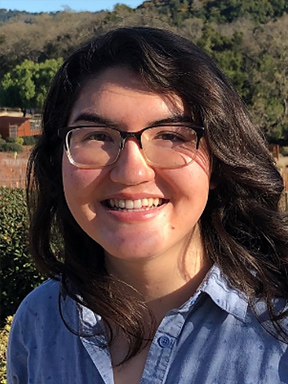
Elise Gubbins
PhD Student, Biological Engineering
Gubbins earned her B.S. in Biomedical Engineering at Yale in 2018 and is now excited to have the opportunity to be at MIT and work on women’s health – a particularly important and understudied area. Her work is focused on generating functional tissue engineered models of mucosal barrier tissues. Her primary interest is in the interplay of cell-generated mechanical forces with differentiation, regeneration, and morphogenic pattern development.
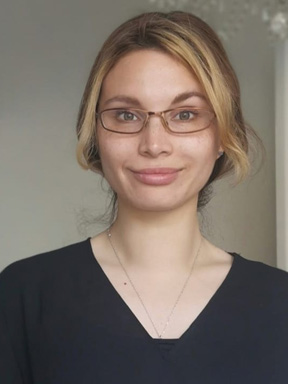
Natasha Hardcastle, PhD
Postdoctoral Researcher
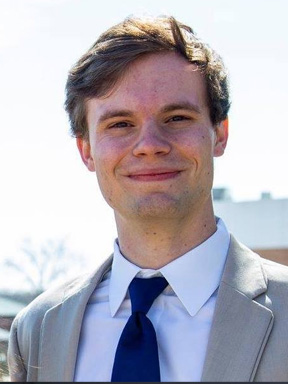
Matthew Johnson
PhD Student, Mechanical Engineering
Johnson earned his B.S. in Mechanical Engineering at Georgia Tech in 2021 before joining the endometriosis device team in March 2022. His previous research experience in microfluidic device design, three-dimensional tissue culture, and electromechanical systems is being applied to develop cutting-edge devices for micro-physiological systems. Johnson’s current research is focused on design iteration and validation toward the realization of an easy-to-use microfluidic platform that enables in vitro replication of complex biological phenomena such as endometriosis lesions, metabolic processes, inter-tissue crosstalk, and immune responses using a novel actuated fluidic circuit.
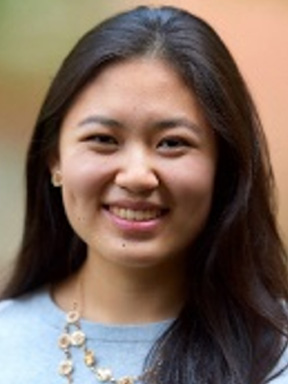
Ellen Kan
PhD Student, Biological Engineering, NSF Graduate Research Fellow
Kan, who earned a B.S. in Biomedical Engineering at Yale in 2019, is excited to be part of a multidisciplinary team that is working on novel approaches to improving women’s reproductive health. Her current research is focused on building a vascularized model of the endometriotic lesion microenvironment. By using this model to study the interplay of hormones and the immune system in endometriosis, we hope to better elucidate disease progression and identify relevant targets for drug development. Kan is also motivated by her past studies of the social and historical aspects of reproductive health, which further inform and ground her scientific research in real-world applications.
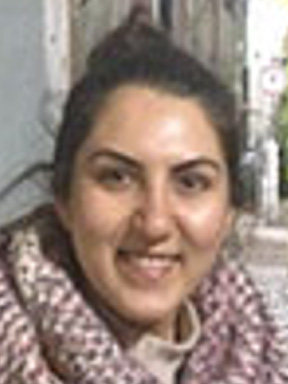
Ayse Nihan Kilinc, PhD
Postdoctoral Researcher
(Bio coming soon)
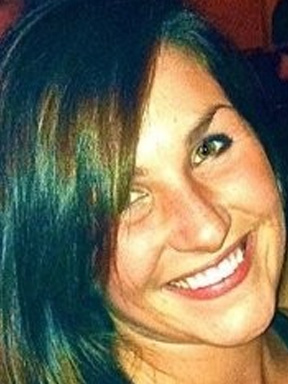
Mollie O’Brien
Research Coordinator, Department of Surgery,
Boston Medical Center
Research Project Manager for the Center for Minimally Invasive Gynecologic Surgery, Newton-Wellesley Hospital
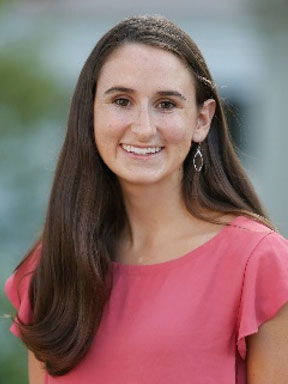
Lauren Pruett, PhD
Postdoctoral Researcher
Pruett earned her PhD in Biomedical Engineering at the University of Virginia in 2022 and is now excited to have the opportunity to pursue postdoctoral research at MIT and work on women’s health – a particularly important and understudied area. Her PhD work focused on design of a synthetic hydrogel for accelerated biomaterial-tissue integration. At MIT, she is applying her prior experiences to design synthetic hydrogels to develop vascularized tissue models.
Current and Alumni Clinical Fellows
Christina (“Stina”) Alicia Salazar, MD, 2015 – 2017 Fellow
Assistant Professor of Women’s Health, University of Texas at Austin, Dell Medical School
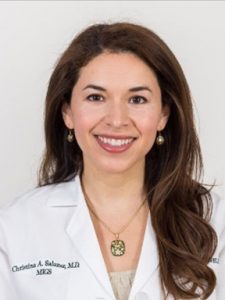
Christina (“Stina”) Alicia Salazar, MD
Medical School: Baylor College of Medicine
OB/GYN Residency: Cleveland Clinic / Case Western Reserve MetroHealth
Fellowship: AAGL FMIGS Newton Wellesley
CGR Experience Statement: Working in collaboration with MIT researchers was one of the highlights of my fellowship training. It was fundamental in helping me understand how to construct a bridge between bench scientific investigations and clinical research.
My own experiences working with Dr. Linda Griffith and her team at MIT were pivotal in helping me develop the skills I needed to excel. In my current practice I have made it apriority to continue similar collaborative work by partnering with Dr. Livia Eberlin at UT Austin on endometriosis research.
I feel lucky to have had Dr. Isaacson as my mentor during my fellowship. It is unique to have the opportunity to learn from an innovator and researcher who is also a prolific surgeon. It has helped my own career tremendously to have attained the skill sets and be trained by a leading expert in his field, whose patients travel from all over the United States and abroad in order to consult with him and undergo surgery. I hope to carry the torch and continue providing excellent care for patients both as a clinician and a researcher.”
Jovana Tavcar, MD, 2019 – 2021 Fellow
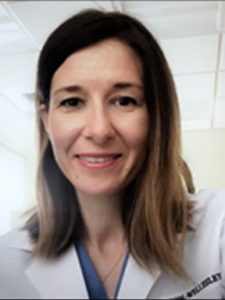
Jovana Tavcar, MD
Newton-Wellesley Hospital, Mass General Brigham
Medical School: University of Belgrade
OB/GYN Residency: Medstar Georgetown University Hospital/Medstar Washington Hospital Center
MIGS Fellowship: Newton-Wellesley Hospital, Mass General Brigham
CGR Experience Statement : “Being part of the CGR team was a tremendous experience for me. It is an invaluable opportunity to witness the state of the art basic science, contribute to moving the boundaries in the endometriosis spectrum diseases, but also to witness the challenges of scientific work in this area of women’s health and how long is the way ahead of us.
[As a mentor,] Dr. Isaacson is an amazing advocate for women’s health, particularly area of endometriosis and reproductive health. His tremendous enthusiasm in this field is the moving force for decades. He holds his standards remarkably high, as they should be, which motivates fellows to achieve greatness.
My goal is to continue contributing to the basic science research in gynecologic pathology, specifically endometriosis, adenomyosis, and reproductive health…There are so many unanswered questions, that will help so many women suffering, usually in silence. It takes a village, but CGR has enough human enthusiasm and brain power to move the mountain.”
Marron Wong, MD, 2016 – 2018 Fellow
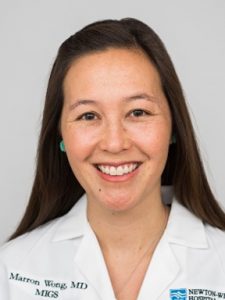
Marron Wong, MD
Gynecologist, Kaiser Permanente
Assistant Professor, Drexel University College of Medicine
Volunteer Faculty, UCSF
Medical School: UCSF 2008 – 2012
OB/GYN Internship and Residency UCSF 2012 – 2016
MIGS Fellowship: Newton-Wellesley
CGR Experience Statement : “As a fellow, we cared for patient after patient with severe endometriosis. It was fantastic to be able to contribute in a small way to this brilliant team of people who are working to understand endometriosis and find a cure.
Besides his contributions to research through CGR and the excellent clinical care Keith Isaacson provides to his patients, Keith’s other legacy is his ever-growing cadre of minimally invasive gynecologic surgery fellows. We are all so lucky to have been able to learn from his mentorship.
[Currently] I care for many patients with endometriosis since we are an endometriosis referral center, and I have a pelvic pain clinic. These patients have often suffered for years without a diagnosis. It can be really helpful to talk about the basic science behind endometriosis to help explain the cause of the pain and other symptoms these patients have endured for so long.”
Kelly Wright, MD, FACOG, FACS, 2011 – 2012 Fellow
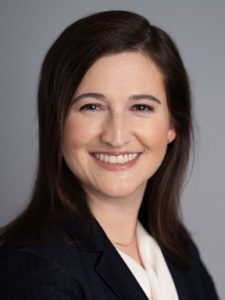
Kelly Wright, MD
Director, Division of Minimally Invasive Gynecologic Surgery, Cedars-Sinai Medical Center, Los Angeles
B.S. in Biomedical Engineering, Texas A&M University, College Station, TX, 2003
M.D., Texas A&M University College of Medicine, College Station, TX, 2007
Intern/Resident in Obstetrics and Gynecology, Brigham and Women’s Hospital and Massachusetts General Hospital Combined Residency Program, June 2007 – June 2011
Fellow in Minimally Invasive Gynecologic Surgery (FMIGS), Newton-Wellesley Hospital
CGR Experience Statement: “Seeing CGR was the first time I had seen any lab dedicated to the study of endometriosis and adenomyosis, which was quite exciting, as most labs I had seen were dedicated to cancer and other ‘fatal’ diseases.
Keith [Isaacson] was a mentor to me all the way from residency through attending hood, and he was president of AAGL when I was a fellow. His leadership always inspired me to try and follow in his footsteps!
[At CGR,] there was a real focus on adenomyosis as a big component of the pain that women with endometriosis can experience, which had largely been ignored up until recently. Keith and CGR were the first places I saw in depth review of adenomyosis and attempts to try and study it.
Endometriosis and adenomyosis are estimated to affect 10 percent of women and account for $69 billion in health care dollars and lost wages in the United States alone. Surgeons need to collaborate with experienced investigators to study endometriosis and adenomyosis in high resource labs rather than simply on our own.”
Collaborators and Advisors
Mauricio Abrão, MD
Associate Professor, Obstetrics and Gynecology, University of São Paulo Medical School, Brazil; Director, Endometriosis Division, Department of Obstetrics and Gynaecology, Sao Paulo University, Brazil; President, Brazilian Endometriosis and Minimally Invasive Gynaecology Society (SBE)
endometriosis surgery and diagnosis; infertility
Website: http://endometriosis.ca/about/board/mauricio-abrao/
Eric Alm, PhD
MIT Professor of Biological Engineering and Director, MIT Center for Microbiome Informatics and Therapeutics
human microbiome in health and disease
Website: http://almlab.mit.edu
Bryan Bryson, PhD
MIT Assistant Professor of Biological Engineering, Senior Investigator, Ragon Institute of MIT/Harvard
Computational Modeling, Infectious Disease, Microbial Pathogenesis, Microbial Systems, Omics, Systems Biology
Website: https://brysonlab.mit.edu/
Jerry Chan, MD, PhD
Director, KK Research Centre
Consultant, Department of Reproductive Medicine
KK Women’s and Children’s Hospital, Singapore
Associate Professor Duke-NUS Medical School
Cancer & Stem Cell Biology Program
Website: http://www.duke-nus.edu.sg/content/chan-jerry
Hilary Critchley, MD, PhD FRSE FRSB FMedSci FFSRH FRCOG FRANZCOG
Professor of Reproductive Medicine and an Honorary Consultant in Obstetrics and Gynaecology at the University of Edinburgh.
Website: https://www.ed.ac.uk/centre-reproductive-health/professor-hilary-od-critchley
Stacey Ann D’mello Peters
Postdoctoral Research Fellow at University of Bergen / Haukeland University Hospital, Norway
Visiting Research Fellow, MIT
Asgi Fazleabas, PhD
Michigan State University Professor & Associate Chair, Obstetrics Gynecology and Reproductive Biology
Director, Women’s Health Research
Co-Director, Reproductive & Developmental Sciences Program
analysis of endometriosis disease mechanisms in baboon models
Lab website: http://expeng.anr.msu.edu/rdsp/faculty/profile/asgi_fazleabas
John Guttag, PhD
MIT Dugald C. Jackson Professor Department of Electrical Engineering and Computer Science
data-driven medical inferences
Website: http://www.csail.mit.edu/user/798
Mark Hornstein, MD
Director, Reproductive Endocrinology D
Professor of Obstetrics/Gynecology
assisted reproductive technologies/in vitro fertilization, laparoscopic surgery
Hilde Jørgensen, MD
Obstetrics and Gynecology, University of Oslo
minimally invasive surgery, cytokine networks in endometriosis and infertility
Roger Kamm, PhD
MIT Cecil and Ida Green Distinguished Professor of Biological and Mechanical Engineering
Director, NSF-funded Center for Emergent Behaviors of Integrated Cellular Systems (EBICS)
Biological Machines/Microfluidics; Angiogenesis/Vasculogenesis; Neurological Disease; Cancer; Simulation and modeling
Website: https://web.mit.edu/meche/mb/
Douglas Lauffenburger, PhD
MIT Ford Professor of Biological Engineering and Biology
Head, MIT Department of Biological Engineering, 1998 – 2019
immunology & systems biology of endometriosis, infectious disease transmission, and chronic inflammation
Website: http://web.mit.edu/dallab/
Stacey Missmer, ScD
Associate Professor of Epidemiology Harvard School of Public Health
genetic and epidemiologic research in reproductive medicine, obstetrics, gynecology, reproductive biology
Website: http://endometriosisfoundation.org/board/member/stacey-missmer/
http://endometriosisfoundation.org/ephect/werf-ephect-working-group/
Stephanie Morris, MD
Associate Medical Director for Center for Minimally Invasive Surgery at Newton-Wellesley Hospital
medical education in gynecology surgery
Kevin Osteen, PhD
Professor of Obstetrics and Gynecology
Professor of Pathology, Microbiology, and Immunology
Pierre Soupart Chair in Obstetrics and Gynecology Vanderbilt University
Adjunct Professor of Obstetrics and Gynecology at Meharry Medical College
reproductive medicine, human endometrium, endometrial dysfunction, endometriosis, progesterone action, environmental endocrine disruptors, developmental exposure
Website: https://medschool.mc.vanderbilt.edu/facultydata/php_files/show_faculty.php?id3=843
Katharina Ribbeck, PhD
MIT Eugene Bell Career Development Professor of Tissue Engineering in the Department of Biological Engineering
biophysics and biology of mucosal barriers; preterm birth; infectious disease modulation by mucosal barriers
Website: http://kr-lab.mit.edu/
David Trumper, PhD
MIT Professor of Mechanical Engineering
Design of precision mechatronic systems; Magnetic levitation for nanometer-scale motion control; Novel actuation and sensing devices
Website: http://meche.mit.edu/people/faculty/trumper@mit.edu
Tal Research Group Collaborators
Learn more at talresearchgroup.mit.edu




